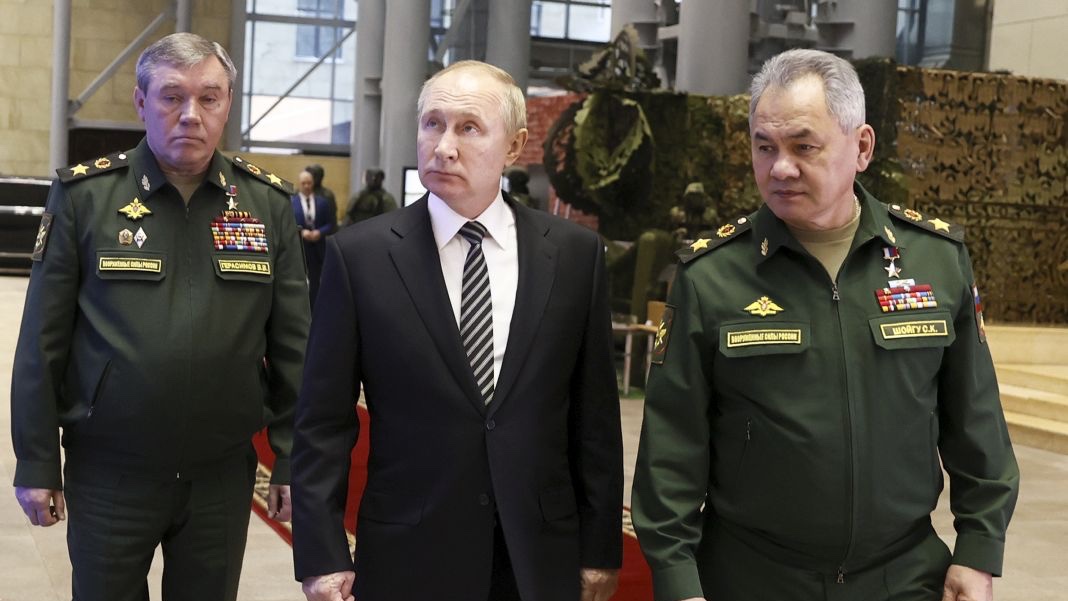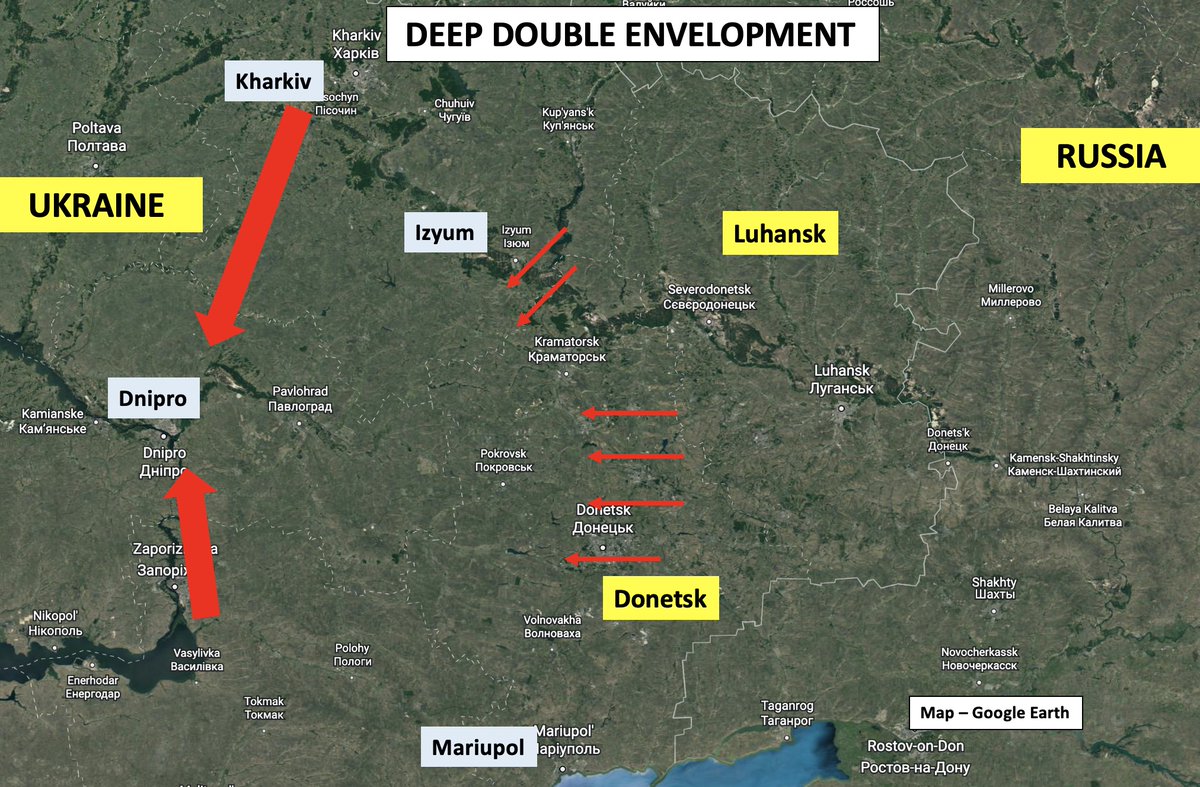
It's 66 days since the Russian invasion of Ukraine began. Today, a short thread on ‘what if Russia loses?’ It is not a prediction. But, it offers some thoughts, based on my ABC article, about such an outcome. 1/20 abc.net.au/news/2022-05-0…
2/20 It was a fascinating week for those who analyse the war in #Ukraine. First, President Biden sent a request to Congress for US$33 billion dollars in military, economic and humanitarian aid for Ukraine. Then, the US Congress approved new Lend Lease legislation.
3/20 Additionally, US Secretary of Defense Austin described how “we want to see Russia weakened to the degree that it can’t do the kinds of things that it has done in invading Ukraine. They can win if they have the right equipment, and the right support.”
4/20 The Russians are now struggling to make a breakthrough in their ‘anaemic’ eastern offensive. Given this, the battlefield effectiveness of the Ukrainians and the huge flow of western aid, a Ukrainian counter offensive to retake their territory is a near certainty.
5/20 This is a nightmare scenario for the Russian military high command. Ukrainian success on the battlefield in the east and the south could mean that Russia may have to request an immediate ceasefire or withdraw its forces to its early February positions.
6/20 Russia's conventional forces have been found wanting in the north, and on the eastern plains of Ukraine. Henceforth, they will have little credibility as a tool of international influence (or bullying) for Russia.
7/20 Another option to avoid total Russian failure on the battlefield is the use of chemical, biological or even nuclear weapons. These might be used to stem Russian loses by destroying concentrations of Ukrainian soldiers or perhaps to force a rapid ceasefire.
8/20 Either way, Russia still ‘loses’. The use of weapons of mass destruction, if Russia’s generals don’t remove Putin first, would mean that Russia would be a pariah state for years, if not decades, into the future. smh.com.au/world/europe/i…
9/20 But, we should also remember that in the past half century, both Russia (Afghanistan) and the United States (Vietnam, Afghanistan) have lost wars without resorting to nuclear weapons.
10/20 What of the geopolitical impacts of a Russian loss? Perhaps the biggest loser would be China.
11/20 The Russia-China ‘friendship’ over the past several years has been constructed on a shared world view that the West is in decline & the need for a different world order than the post-World War 2 system built by the victors (which included Russia & China).
12/20 A Russian loss would upset President Xi’s efforts to persuade other nations that there are other forms of governance that work besides Western democratic models.
13/20 It would be a blow to Xi’s personal credibility – at home and abroad - because he invested in a relationship with a Russian President who is now a proven loser.
14/20 And it would also have an impact on Chinese aspirations for Taiwan – Ukraine’s tenacious defence has inspired the Taiwanese, and re-energised international support for the small island democracy. reuters.com/world/asia-pac…
15/20 Finally, the unity achieved in Europe and many other western nations in supporting Ukraine is a setback to Xi’s narrative about the decline of the west. It has sidelined Chinese influence.
16/20 As Craig Singleton has written recently, “Chinese President Xi Jinping has been reduced to a bystander seemingly at the mercy of decisions made not in Beijing but in Washington, Brussels, and, more importantly, Moscow.” foreignpolicy.com/2022/04/26/why…
17/20 Even if the war ended tomorrow, Russia would be a much weaker and poorer nation than it was on 24 February. The magnitude of its losses in Ukraine – physical, moral and reputational – will take years to overcome.
18/20 It is likely, regardless of the outcome, to be a much more embittered nation, fuelled with narratives of NATO predations on Russia, while struggling to juggle the impacts of western sanctions. This makes it weak but also dangerous.
19/20 While the intention of the US administration may be to weaken Russia so that it can no longer threaten its neighbours, this must be a very carefully calibrated victory. The twentieth century has examples of the right ways and wrong ways to treat defeated nations.
20/20 We must learn from these examples. Because, if Russia (which retains nuclear weapons) is weakened too much in defeat, they may become a much more dangerous nation. And that is in none of our interests. End 

• • •
Missing some Tweet in this thread? You can try to
force a refresh











